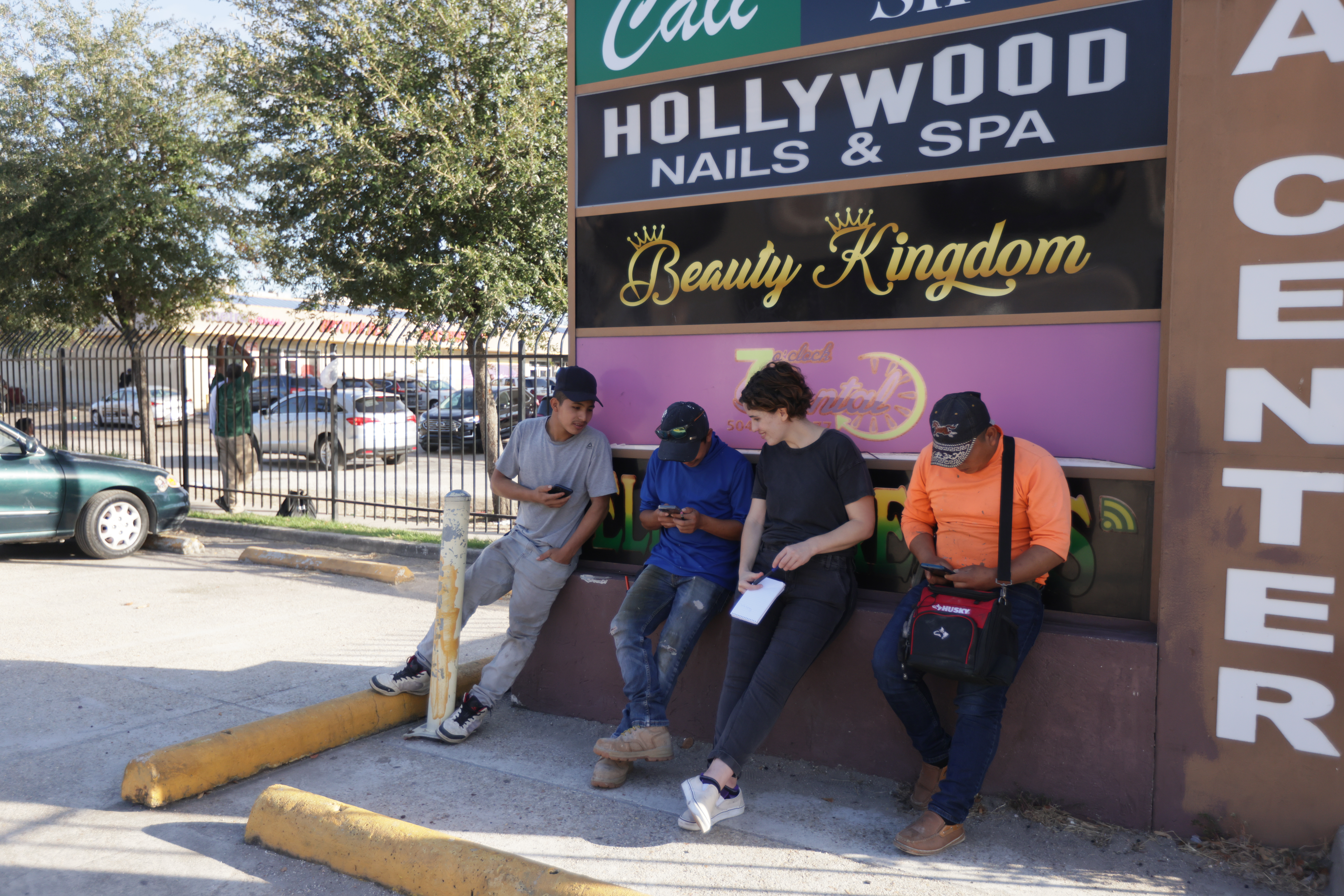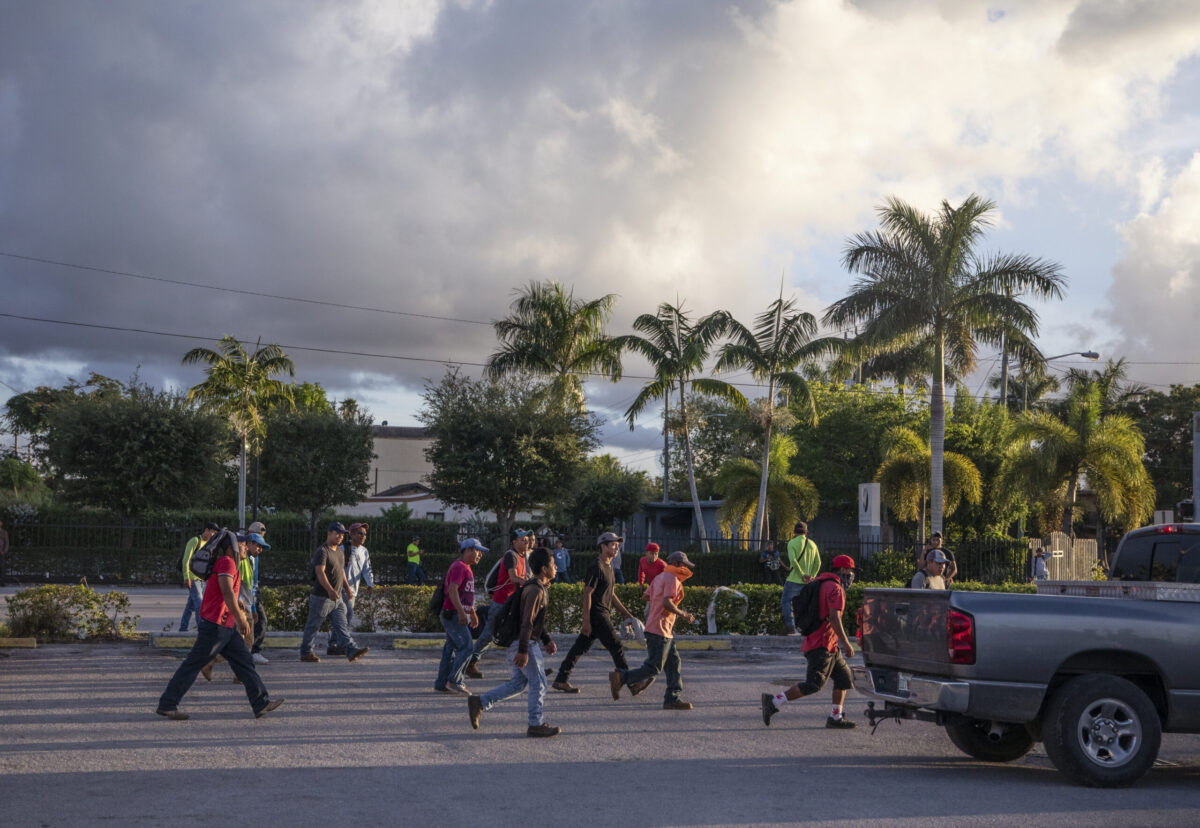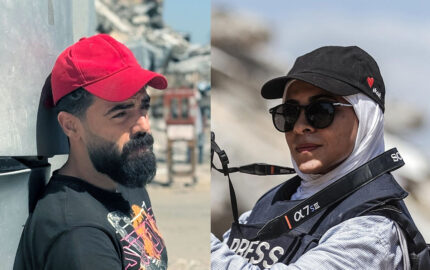Reporter Hannah Dreier’s hard-hitting, meticulously researched New York Time investigation “Alone and Exploited,” is winner of the 2023 Worth Bingham Prize for Investigative Journalism.
In her six-part series, Dreier exposed the staggering scope of America’s hidden migrant child workforce and examined the policy failures and willful disregard by government administrators and corporations alike that allowed children to work in dangerous, sometimes life-threatening conditions in violation of child labor laws.

Dreier found migrant children, many who had entered the country as unaccompanied minors, working in all 50 states, often making household products for companies including Fruit of the Loom, Ford, General Mills, J. Crew, and Ben & Jerry’s. They held jobs in factories, on construction sites and in slaughterhouses, sometimes working overnight shifts to earn money to send to their families back home and often while trying to go to school.
Curious about what happened to the children who arrived in the U.S. alone during the unprecedented wave of child migration from January 2015 through May 2023, Dreier began her reporting by collecting immigration statistics. Through Freedom of Information Act requests and eventually a federal court suit, the Times gained access to crucial Health and Human Services data that showed nearly 400,000 children, most of them fleeing poverty, had crossed the U.S. southern border by themselves. A number of them had been released to sponsors who were not their parents.

To conduct her research and do interviews, Dreier traveled to 13 states and visited schools, social functions and factory parking lots during shift changes. She earned the trust of hundreds of working children as well as federal contractors, government social workers, private auditors, hiring managers and trafficking investigators across the country. Sources at the White House and federal agencies also shared information showing that officials repeatedly ignored the growing problem of child labor.
Dreier created important databases that listed children killed on the job, showed how infrequently the government prosecuted cases of child labor trafficking and chronicled workplace injuries. The Times has shared that information publicly to help communities and news outlets across the country, including the Cincinnati Enquirer and Atlanta Journal-Constitution, track the problem in their own areas.
Reporting Spurs Changes
The series had tremendous impact and swiftly led to significant government and corporate reforms: HHS expanded support for migrant children, including $1 billion for legal services and universal case management; the Labor Department increased fines for child labor violations, agreed to start publishing injury and fatality statistics connected to migrant children and opened new cases; and members of Congress launched investigations and introduced 16 child labor bills, some of which have started to advance. Dreier’s story about ignored warnings led to oversight hearings for HHS Secretary Becerra, who was also subpoenaed, and the quick resignation of White House adviser and director of the Domestic Policy Council Susan Rice.
Also in response to the reporting, the USDA retrained 8,000 slaughterhouse inspectors to report child labor. Corporations including Ford, Walgreens, Mars, General Mills, Mondelēz and PepsiCo imposed stricter hiring standards for all U.S. suppliers and McDonald’s, Starbucks, Costco, Whole Foods and Smithfield Foods began requiring auditors to make unannounced factory visits and scrutinize night shifts.
The stories prompted changes at the state level as well: Illinois passed a staffing agency enforcement law; Colorado gave injured children the right to sue employers; Arkansas and Minnesota increased child labor fines; and California required schools to teach workplace rights. Oregon and Virginia have strengthened child labor laws and states including New York and Illinois have set up task forces to focus on migrant child labor.
Commenting on Dreier’s series, Bingham Prize judge Jennifer Smith Richards said: “Each piece is a sledgehammer of investigative journalism, precisely and beautifully written. Each story is compelling and artful, a feat made possible by the depth of the reporting and Dreier’s dedication to spending time in the communities where migrant children are part of the workforce. The swift and meaningful impact is truly impressive. This is investigative journalism that could not be ignored.”
Deborah Berry, another Bingham Prize judge noted: “This powerful package was heartbreaking and alarming. It shared the gripping stories of young migrant workers with simple writing but writing packed with so much detail the reader could almost see the factory, smell the ammonia, feel the crush of the bones. It was a great example of accountability journalism — pointing out what schools, companies, caregivers and agencies should and could do to protect young workers.”
Recognizing the vulnerability of her subjects, Dreier took pains to protect the children she interviewed, naming only those whose sponsors in the U.S. and parents at home gave permission. She also guarded the identities of undocumented adults she spoke with and did not profile children if contacting a sponsor would put them at risk. Her articles were translated into Spanish at the request of children profiled in the reporting who wanted their stories to reach others like them, and they were covered in 15 Latin American countries. Versions of Dreier’s roofing investigation were created on TikTok and Instagram to reach migrant children on the platforms they use most often.
Dreier worked closely with New York Times senior investigations editor Kirsten Danis to produce the series. Other staffers assisted with research, photography, video and graphics.
The seven journalists who judged the Bingham submissions this year are Amanda Becker, Washington correspondent for The 19th and a 2023 Nieman Fellow; Deborah Berry, national correspondent for USA Today and a 2023 Nieman Fellow; Ana Campoy, editor for The Washington Post’s Climate team and a 2020 Nieman Fellow; Jodi S. Cohen and Jennifer Smith Richards, ProPublica reporters and winners of the 2022 Bingham Prize; Danny Fenster, contributing editor and director of memberships at Frontier Myanmar and a 2023 Nieman Fellow; and Angie Drobnic Holan, director of the International Fact Checking Network at the Poynter Institute and a 2023 Nieman Fellow.
The $20,000 Worth Bingham Prize for Investigative Journalism honors investigative reporting of stories of national significance where the public interest is being ill-served. It is presented annually by the Nieman Foundation for Journalism at Harvard University. Worth Bingham, who died at the age of 34, achieved prominence as an investigative journalist and was vice president and assistant to the publisher for the Louisville Courier-Journal. He was a 1954 Harvard University graduate. His family and friends created the annual prize in his memory in 1967.
The Nieman Foundation for Journalism at Harvard educates leaders in journalism, promotes innovation and elevates the standards of the profession. More than 1,700 journalists from 100 countries have been awarded Nieman Fellowships since 1938. The foundation also publishes Nieman Reports, a website and print magazine covering thought leadership in journalism; Nieman Journalism Lab, a website reporting on the future of news, innovation and best practices in the digital media age; and Nieman Storyboard, a website showcasing exceptional narrative journalism and nonfiction storytelling.



